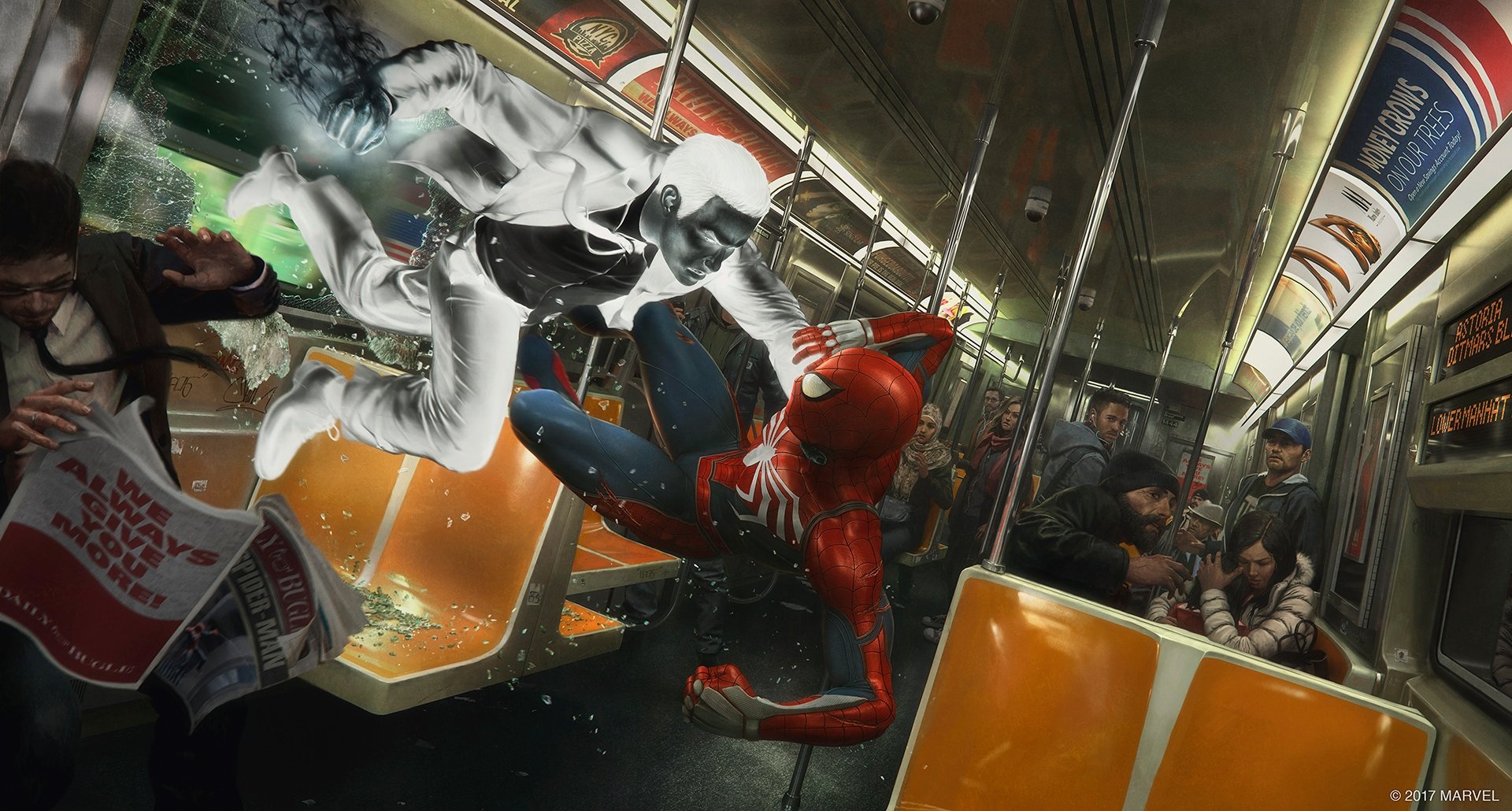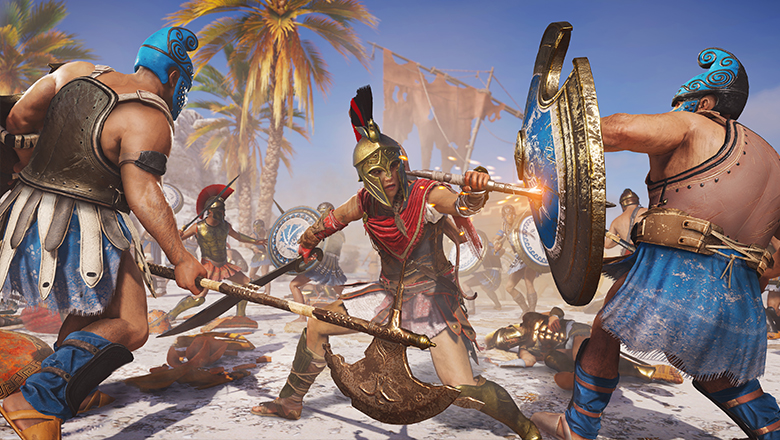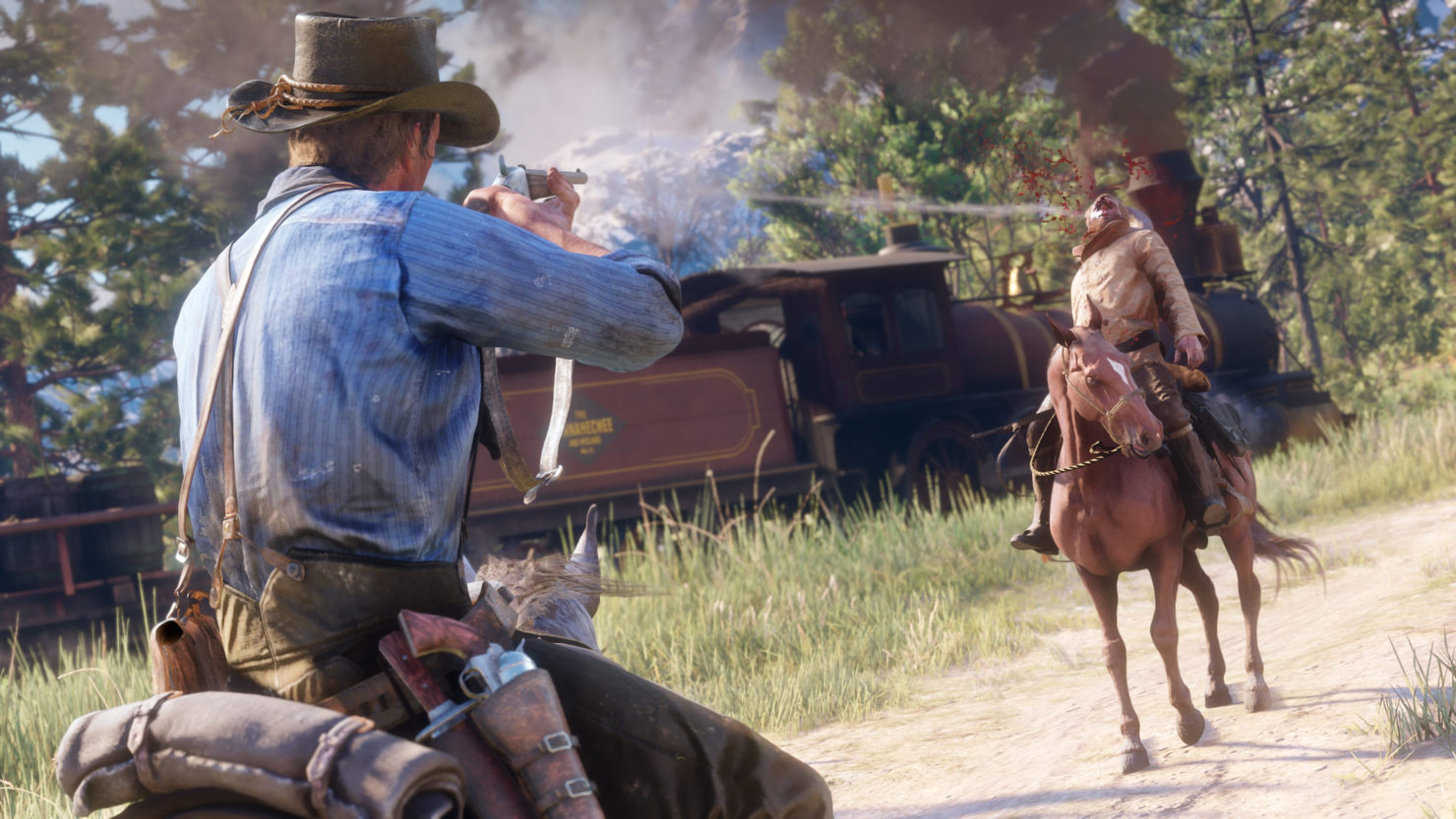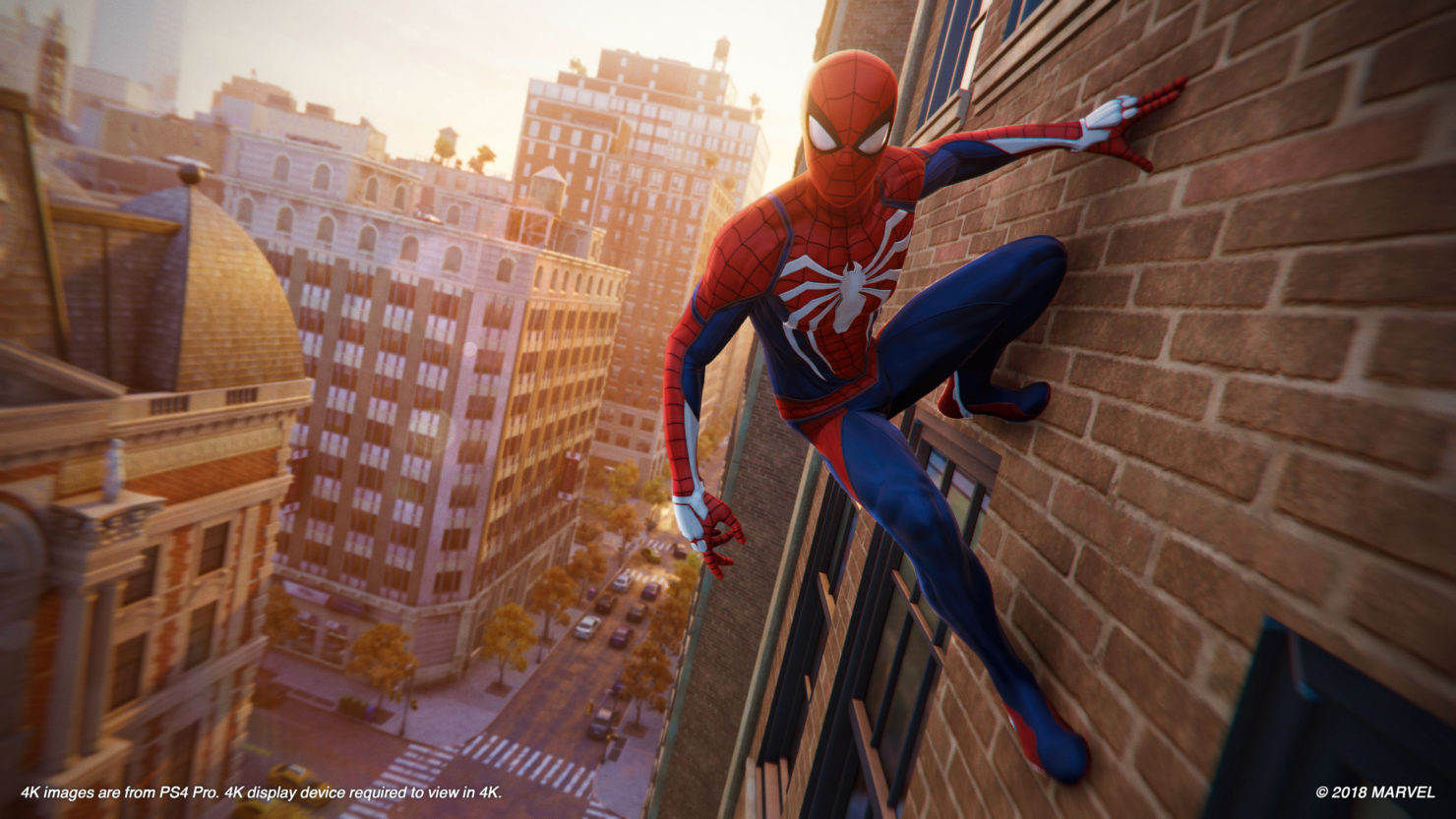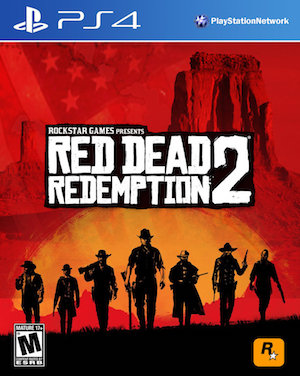
The world of Insomniac’s Spider-Man intrigued me from the moment it opened up. Manhattan wasn’t a new location by any means – Flatiron, Times Square and the Bronx all leaped out from my time with Tom Clancy’s The Division – but the connection here felt stronger. In a game like Spider-Man which embraced so many different movement possibilities, it was liberating to swing around the city. I was effortlessly running across walls and diving off rooftops into high-velocity swings. It also made for some epic encounters when storming bases or stopping crimes because stealth is an option but if I want to dive-bomb onto some fool and have Spider-Man interrupt the party with a nice quip, you’re damn right I’m gonna do that.
"For all intents and purposes, Spider-Man has a stellar open world game even if the campaign is linear. The story missions insist on sticking to a fixed path narratively, ensuring the gameplay follows along."
One could swoop in from above, take down criminals one by one during a police shoot-out, or flee from foes on rooftops, using the sides of the building to swing around for a different attacking angle and some breathing room. This freedom called to mind the reasons why I enjoyed the worlds of Sunset Overdrive and Saints Row 4, even if both of those games didn’t really reinvent the wheel in terms of side mission design.
However, one thing that stuck out most were the game’s campaign missions. I found the majority of them to be quite enjoyable – yes, even the ridiculous premise of Miles sneaking past Saber agents to get to F.E.A.S.T. on time – but many were fairly clear-cut on what you had to do. That is to say, if you didn’t do those things, you’d fail the objective and have to reload from a checkpoint. In Spider-Man‘s case, this could be something as simple as not keeping up with Shocker during a chase. Others include failing the few stealth sections in-game which, by design, were sections that couldn’t be salvaged even if you failed.
This isn’t to say that Spider-Man is terribly constrained in its gameplay. Story missions are fairly linear by design with the odd bit of freedom thrown in, like saving Fisk’s men from the Demons in the famous construction site disaster, before pivoting back on rails. Also, there are a good many missions which give you plenty of freedom in combos and approach. Some stealth missions involving Spider-Man will let you forgo stealth altogether and charge in, fists and webs flying. However, if you take your time, then additional Focus will be built up and throwables saved when the next wave arrives.
The fact that so many of the same types of missions and activities exist in Spider-Man can’t really be ignored. But the world is fun to play around and engage with – it evolves as the story progresses, reacting to what’s happening rather than staying static. For all intents and purposes, Spider-Man has a stellar open world game even if the campaign is linear. The story missions insist on sticking to a fixed path narratively, ensuring the gameplay follows along. If you’re not onboard, then you’ll keep doing the same thing until you are or ignore it completely in favour of messing about in the sandbox. That’s by and large how open world games have always worked.
"Some may feel that Red Dead Redemption 2‘s open world doesn’t really do enough to introduce meaningful consequences, especially considering the game’s narrative and the weight of the events taking place."
But many never really thought about it until Red Dead Redemption 2 released. The game’s narrative, world-building, design and overall immersion have been praised highly. You won’t find many players complaining about the sheer wonder they experience from finding hidden treasures, secrets, side missions, NPCs and activities. However, it’s not too long before the same random occurrences in the open world start to re-emerge. The same people require rides back to town after their horses die, sharing the same stories. The same men are opening safes by the roadside. It doesn’t stop the world from feeling alive but it definitely reminds you that it’s a fantasy above all else.
Then there’s the campaign. Though the narrative is stellar, gameplay-wise, you’re not doing anything to deviate from the game’s stated directions. On the contrary, you’re very, very heavily encouraged to do exactly as the game states. Spider-Man may have offered a bit more room for improvisation but in Red Dead Redemption 2, you need to do exactly what the bottom screen text tells you or risk failure.
Now, you’ve probably read up till here, wondering why these two games that are so great especially with their stories, characters, plot-points and gameplay should be criticized for how they function with the open world genre.
However, It’s important to note that taking a heavily linear approach in terms of narrative isn’t a bad thing. Pushing the player towards a specific objective as much as possible, in as pre-defined a way as possible, isn’t a bad thing. When considering the freedom that open world games provide, this kind of divide is fairly interesting.
Some may feel that Red Dead Redemption 2‘s open world doesn’t really do enough to introduce meaningful consequences, especially considering the game’s narrative and the weight of the events taking place. When you think about it though, it’s fairly tough to reconcile an open world with so much freedom, random events and NPCs where the weight of your actions can directly influence the main plot.
"Let’s look at The Legend of Zelda: Breath of the Wild, where finding Shrines, exploring the world for better weapons and armour, and freeing the Divine Beasts does provide an edge against Ganon."
Does everything need to have an impact on your actions though? Are the dozens of Athenians I’ve killed during a melee on the streets in Assassin’s Creed Odyssey really supposed to prevent me from ever coming back to the town? Should entire sections of gameplay be shut away from the player for their cataclysmic actions (which games like the Fallout series have done, don’t get me wrong)?
Let’s look at The Legend of Zelda: Breath of the Wild, where finding Shrines, exploring the world for better weapons and armour, and freeing the Divine Beasts does provide an edge against Ganon. You could argue that gameplay-wise, this a world where your actions have consequences. But do they really? The world may be evolving in broad strokes, whether it’s the Iga Clan ninjas constantly coming after you as the game progresses or the Gorons, Zoras, etc. seeing their regions change thanks to your intervention. Go a little deeper and you’ll see that in terms of story, not much really changes, whether you’re spending 30 hours playing and beating Ganon or 200 hours clicking photos of every single plant.
Even if you want to keep the discussion centred purely on the campaign, a game like The Legend of Zelda: Breath of the Wild only has so many ways to engage with the content. You may be finding different ways to infiltrate Hyrule Castle or fight Ganon’s various forms but the objective is still the same. You won’t be deviating much from the missions to free the Divine Beasts. And really, you can’t tell Prince Sydon to shove it and refuse to help the Zoras, dooming their kingdom to flooding. At best, you can just ignore that part of the game altogether. It’s doable but doesn’t have any discernible impact on the world besides making a boss fight harder.
The same goes for The Witcher 3: Wild Hunt. Sure, you could influence whether Ciri lives or dies, or whether she joins Geralt and becomes a Witcher. But you can’t ignore the battles against the Wild Hunt and continue the story. For all the different choices that make the battle of Kaer Morhen play out slightly differently, you can’t stop Vesemir from dying. Similarly, you may find unique side missions all over the place but it’s not before some of the NPCs start to repeat. The NPCs themselves don’t even live very complex lives and don’t have full schedules that you can keep track of. Because that’s just not how some games work.
"We may not be deviating much on this roller-coaster but we’re emotionally connected to these characters and their fates."
For Red Dead Redemption 2 and Spider-Man, the limits of the open world – when they emerge – can make it obvious that you’re playing a video game. The same goes for the campaign missions which shuttle you along on one fixed path. However, one thing that needs to be kept in mind are the emotions that players feel when experiencing all of this, whether it’s the first time, the hundredth time, etc.
I’ve seen a few people comparing Red Dead Redemption 2 to Westworld. How eventually the facade is revealed and you’re not really in a living world but one that’s effectively staged. But the same can be said about books, movies, TV shows, plays and radio dramas. These are pieces of art or entertainment, carefully crafted to stir an emotion or provide some amusement for the person experiencing it. Do things get muddled in games because you’re living vicariously through a fictional character? Yes, but that doesn’t discount the emotional impact that these stories can have on the player, no matter how often they’re played out.
Because as many times as you may listen to the same stories, play the same activities, experience the same side quests or venture into the same regions, the emotions stirred up are real. We covet them, enjoy them and perhaps derive some meaning from them. We learn something new or observe something different each time. Even if we don’t, there’s the solace of settling down into a familiar rhythm, a well-known tale, and enjoying it for what it is.
The same goes when experiencing the campaign. We may not be deviating much on this roller-coaster but we’re emotionally connected to these characters and their fates. Just because you know how a story ends doesn’t mean you can predict how you’ll feel on the journey getting there. Then again as someone who believes that some single-player games can hold as much replay value as a games-as-a-service title depending on one’s outlook, take my opinion with a grain of salt.
"At times, we’re reminded that for all the realism that Red Dead Redemption 2 pushes for – the skinning, the inventory management, the eating and the bathing – we’re still playing Arthur Morgan instead of living his life."
So inherently, does this mean that everyone who wants to get “immersed” in Red Dead Redemption 2 or Spider-Man is “wrong”? Well, no. They’re just pointing out the obvious. For all the graphical advancements that have been made, all the hundreds of thousands of hours of time placed into getting every single detail right, the limitations that govern story-telling and world-building will always be present.
There are a number of ways to tell a story. However, to create a living world unto itself that serves as a vehicle for that story while simultaneously impacting and reshaping it, especially given how cinematic and highly polished the direction for these campaigns can be, is a monumental challenge. It’s not a problem that can be solved by just spending more money, hiring more employees, pushing more crunch hours or inventing more powerful consoles. Clever writing and risk-taking, like cordoning off certain content, can mask it but in the end, this is simply a consequence of all creative mediums. Ultimately, the tales told are finite. The worlds we explore are defined and not nearly as mysterious.
At times, we’re reminded that for all the realism that Red Dead Redemption 2 pushes for – the skinning, the inventory management, the eating and the bathing – we’re still playing Arthur Morgan instead of living his life. But when you’re so emotionally invested in a story and its characters along with the world they inhabit, is the difference really such a deal-breaker?
Note: The views expressed in this article are those of the author and do not necessarily represent the views of, and should not be attributed to, GamingBolt as an organization.








